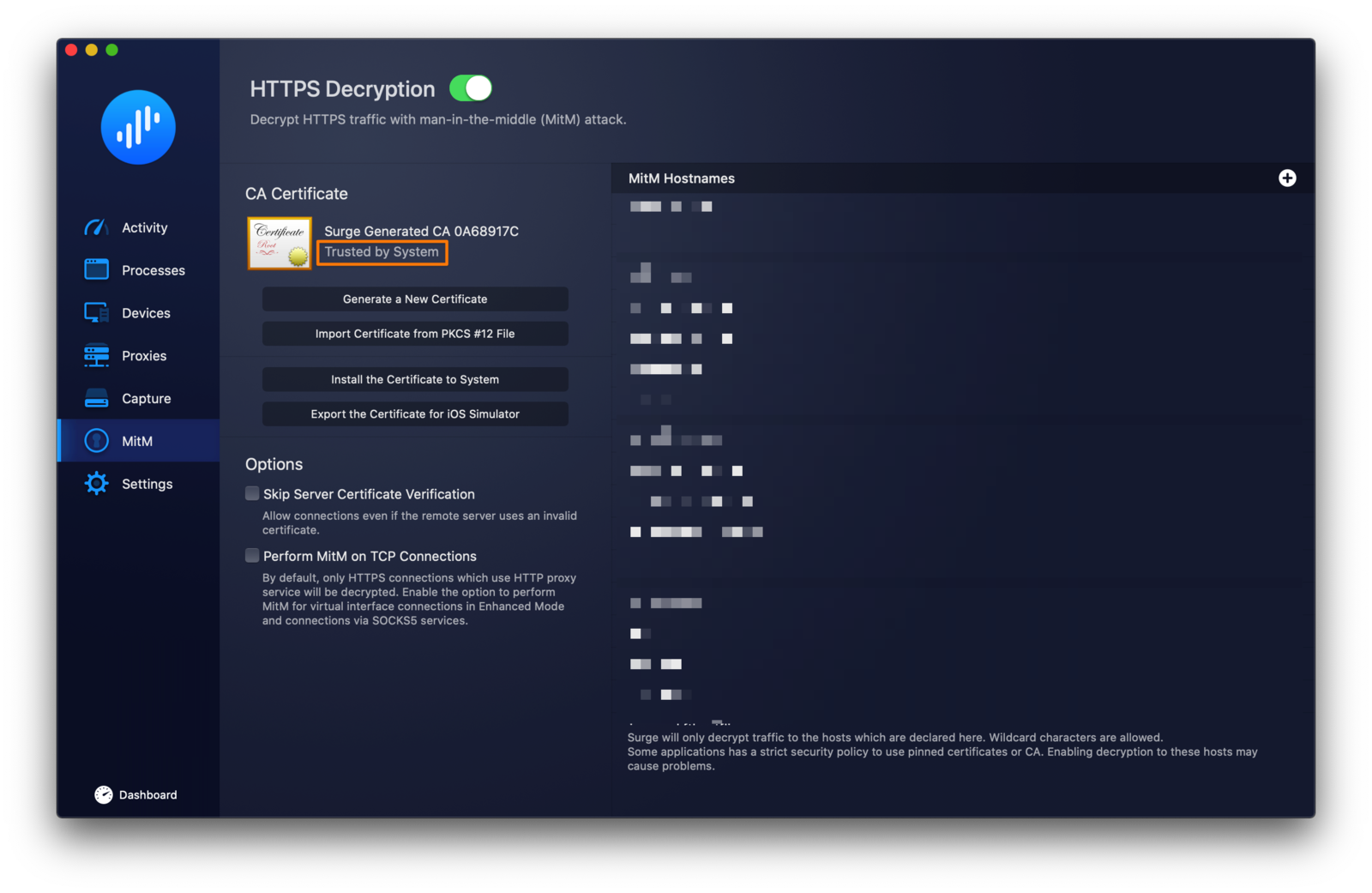0.1.4 • Published 5 years ago
yasd-helper v0.1.4
yasd-helper
Surge only provides HTTP API to its users at the moment, crippling the possibility of using the PWA version of YASD. yasd-helper's goal is to expose HTTPS endpoints to Surge.
Installation
Before installing yasd-helper, you need to make sure your environment already has Node.js installed (>=12.0.0).
$ npm install yasd-helper -gUsage
yasd-helper uses the existing CA certificate generated by Surge to issue new certificates, so please make sure your Surge config has a valid MITM certificate, and your operating system has trusted the certificate. As long as the CA certificate is trusted by the operating system, you won't be prompted to trust any new certificates issued by it.

$ yasd-helper start --surge /path/to/surge.conf --host 192.168.1.2.nip.io [--port 8443]- nip.io gives you a domain based on the IP address.
192.168.1.2.nip.iowill be resolved to192.168.1.2where yasd-helper is going to be running at. - yasd-helper only exposes HTTPS endpoints at
https://192.168.1.2.nip.io. - You can make it accessible outside your intranet, just to use the DDNS domain as
host. yasd-helper will make sure only the responses from Surge API get passed. - You can use only one yasd-helper to access as many Surge instances as possible, as long as they are on the same intranet.
- The default port is 8443, you can define another one by adding
--port <number>
Daemonize
macOS LaunchAgent
TBD
PM2
TBD



